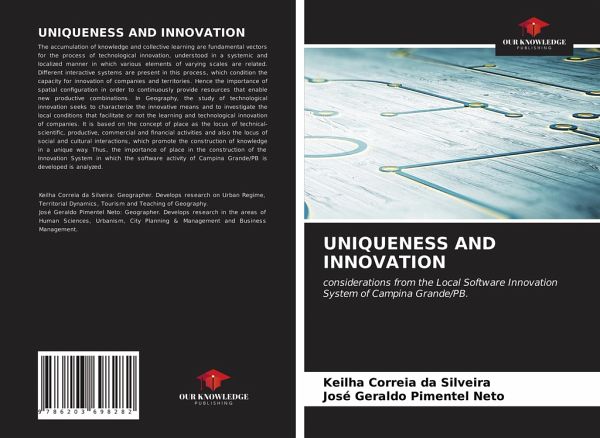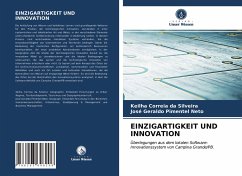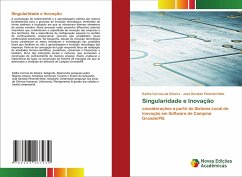
UNIQUENESS AND INNOVATION
considerations from the Local Software Innovation System of Campina Grande/PB.
Versandkostenfrei!
Versandfertig in 6-10 Tagen
27,99 €
inkl. MwSt.

PAYBACK Punkte
14 °P sammeln!
The accumulation of knowledge and collective learning are fundamental vectors for the process of technological innovation, understood in a systemic and localized manner in which various elements of varying scales are related. Different interactive systems are present in this process, which condition the capacity for innovation of companies and territories. Hence the importance of spatial configuration in order to continuously provide resources that enable new productive combinations. In Geography, the study of technological innovation seeks to characterize the innovative means and to investiga...
The accumulation of knowledge and collective learning are fundamental vectors for the process of technological innovation, understood in a systemic and localized manner in which various elements of varying scales are related. Different interactive systems are present in this process, which condition the capacity for innovation of companies and territories. Hence the importance of spatial configuration in order to continuously provide resources that enable new productive combinations. In Geography, the study of technological innovation seeks to characterize the innovative means and to investigate the local conditions that facilitate or not the learning and technological innovation of companies. It is based on the concept of place as the locus of technical-scientific, productive, commercial and financial activities and also the locus of social and cultural interactions, which promote the construction of knowledge in a unique way. Thus, the importance of place in the construction ofthe Innovation System in which the software activity of Campina Grande/PB is developed is analyzed.












